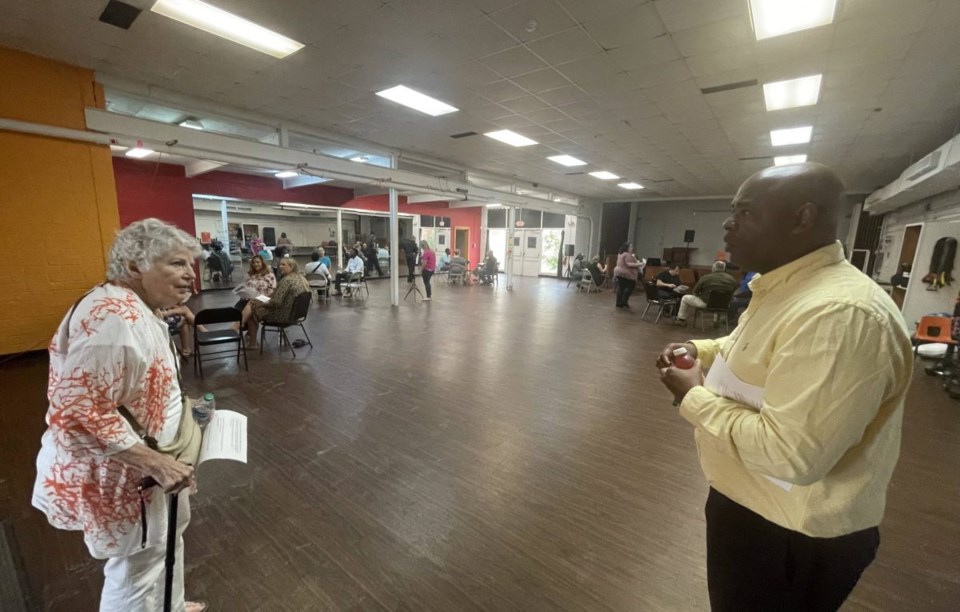The Violence Prevention Task Force of the One Boro Commission hosted Securing Statesboro: Beyond the Numbers, a violence prevention forum, at the Statesboro Family YMCA on Saturday, September 10th. This was the second annual forum
The meeting was open to all who wished to come and focused on educating attendees about the current state of violence in Statesboro and measures to curb the crime rate. Members were also allowed to have an open dialogue and share their experiences dealing with or witnessing violence in Statesboro.
The meeting was kicked off by Mayor Jonathan McCollar, with an impassioned speech about the town's current state. In the speech, he made clear his intentions extend beyond stopping crime but instead getting to the root of it.
"For the past 60 years, we've dumped billions and billions of dollars into law enforcement, we've incarcerated 2 million people, and our communities are still not safe," the mayor said. "And so after 60 years, we have to think differently."
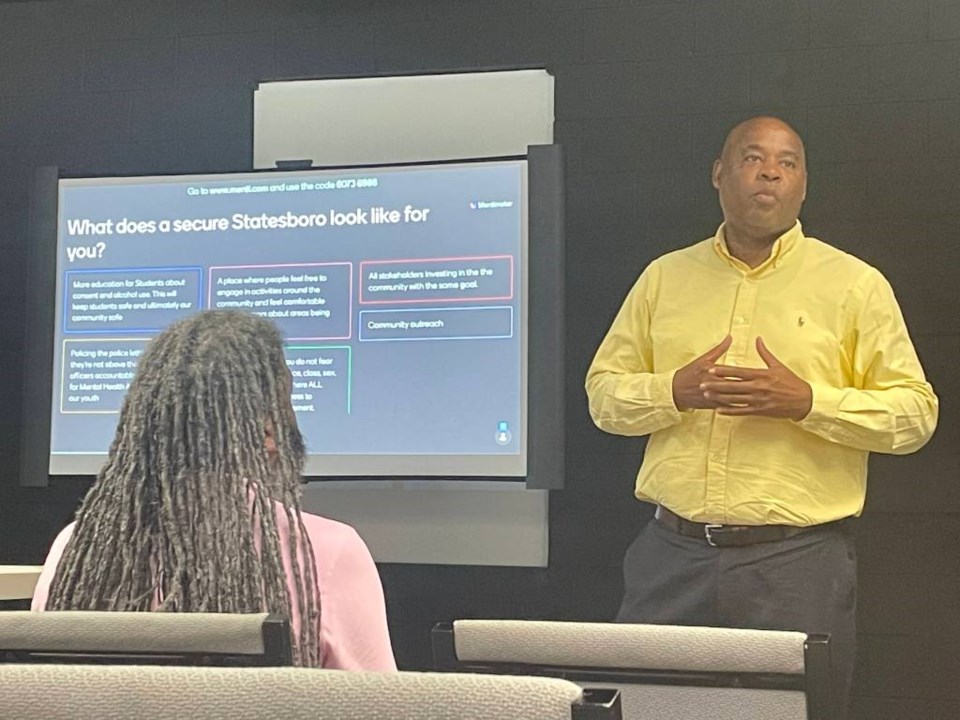
It's not just about reducing crime; it's also about eliminating the conditions in which it can flourish. The target demographic during the speech was primarily the younger crowd.
"When you look at the crime, breaking into cars, stealing items, stealing guns, these are young people doing these crimes," McCollar said. "And if we can put a dent in that, just imagine how much safer our community could become."
McCollar talked about some things his administration has done to reach the younger generation -- things like starting The Village Builders Initiative, designed to help kids learn tools for success in life at an earlier age. The program focuses on teaching literacy skills, civic engagement, and entering the workforce.
Small Group Discussions
But while it is a good start, it is far from enough. Later that morning, meeting attendees broke out into small groups to discuss some of the violence they've experienced in Statesboro and what they believe is the root cause.
Many problems were addressed, and many solutions were proposed. Some believed violence could be curbed by adding additional areas for kids to play in, giving them an alternative outlet to express themselves rather than resorting to violence.
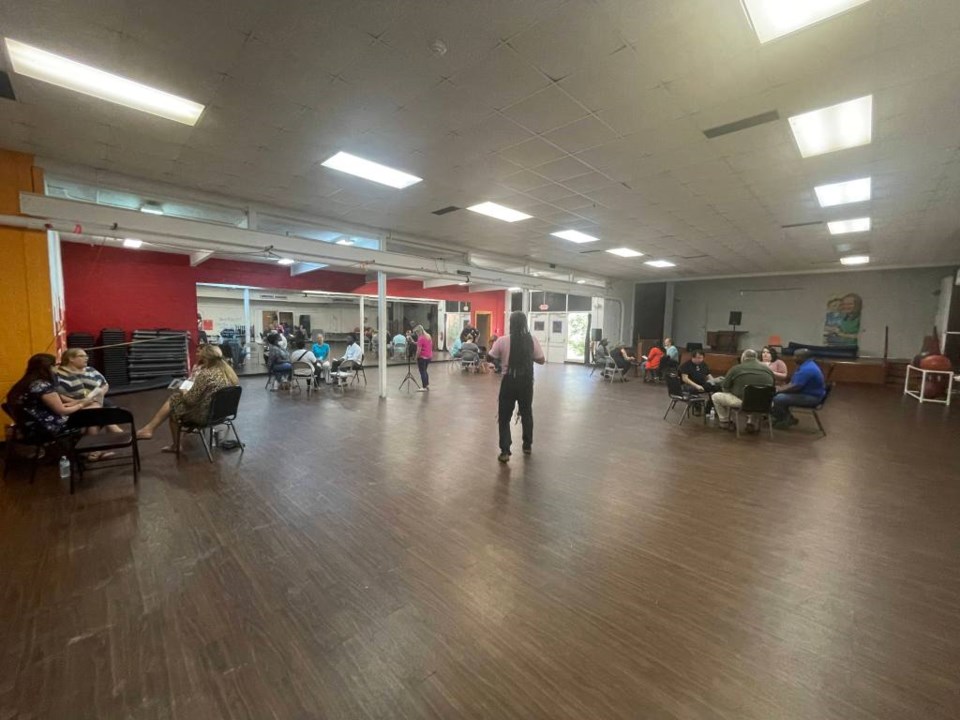
Others felt in addition to this, parents also needed a place of their own to feel heard. One group pitched the idea of introducing a community policing program, while another group pitched the idea that schools should focus on having smaller class sizes to keep things more personal. This would help give students the attention they need to grow.
One member of the meeting, retired principal Janice Cawthorn, passionately expressed that the best thing you can do for a child is mentoring them.
"You don't think kids need much, right?" she asked rhetorically. "Just lots of love and that sort of thing. But they all need it. They all need it. They need you; they need interactions with good human beings."
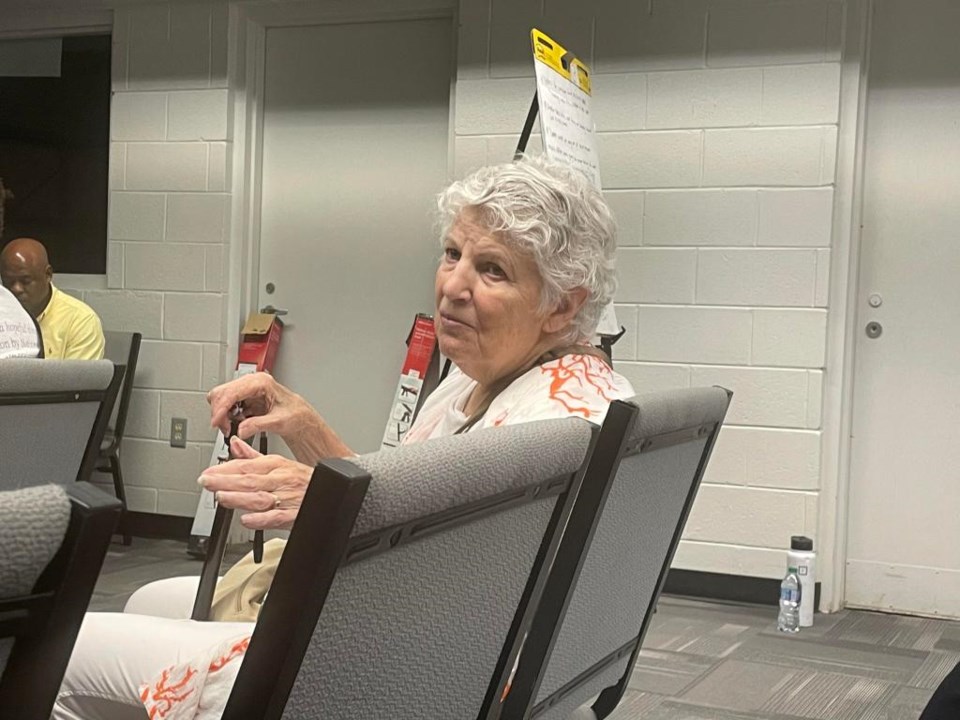
Cawthorn spoke about her experience from her principal days, when she volunteered at the Elks National Home. She developed a child mentorship program to help kids learn essential life skills there.
"One man came over," Cawthorn continued. "All he did was help one kid with his spelling. He had to learn to spell five words every week, five different words every week. He went from getting none of them right to all of them right."
Community Leaders speak
After small groups, three guest speakers took over the meeting with their individual presentations.
Keith Wilkey, School Safety
The Bulloch County Schools Director of School Social Work and Homeless Liaison, Keith Wilkey, kicked things off with his presentation on school violence and how it can be prevented. In the presentation, Wilkey explains that while school violence seems more dangerous, national data shows that the amount of violence occurring in schools has been declining for a while now.
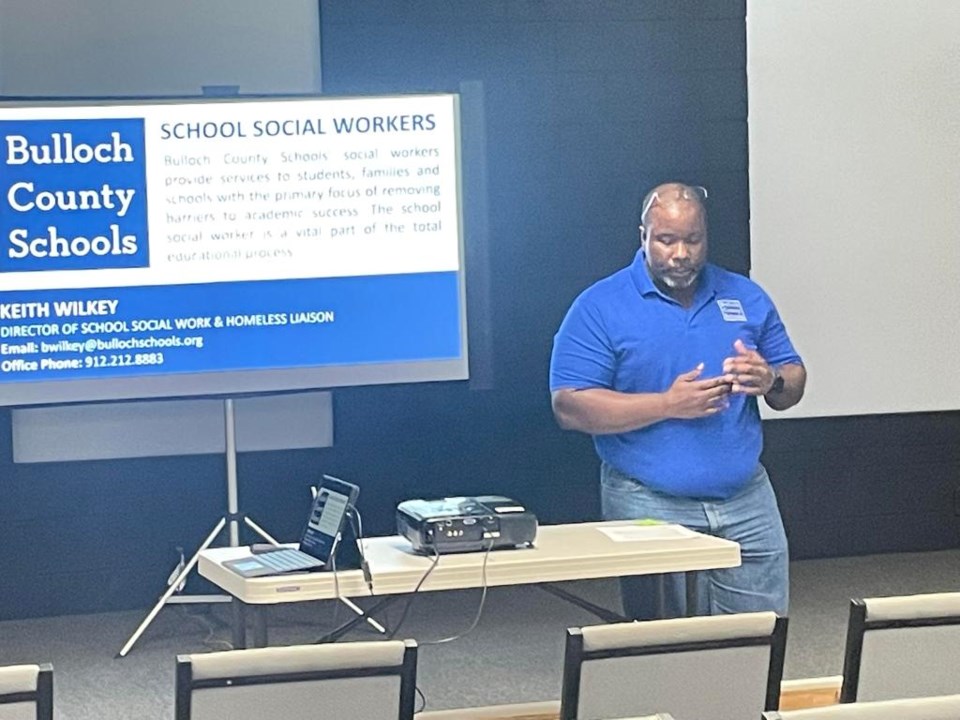
However, while school violence is declining nationally, it still exists. Bullying, cyberbullying, and fistfights are among the most common levels of violence on school grounds. All three actions typically go hand in hand in a lot of cases. And in his speech, Wilkey gives three examples of what can be done to help fight against it.
Morning Meetings in Schools
One of the ways schools have attempted to curb violent behavior is to implement morning meeting sessions with students. The idea is to have 20-minute classes for students, teaching them community building and conflict resolution skills.
"Connected community research is telling us that when students feel more comfortable in school, and they feel like they belong there, they're less likely to engage in aggressive behavior," Wilkey said. "So, group decision making, teamwork building, and conflict resolution, often led by teachers, is what we're doing now."
The initiative is still in its infancy stages, being tweaked until it's just right. But once perfected, Wilkey seeks to get more schools to adopt the morning meeting system.
Teaching Social and Emotional Skills
Wilkey's second method is teaching students how to control themselves emotionally.
"We're teaching students to identify feelings," Wilkey said. "One of the things that we try when we teach these emotional skills is that students may have distress at school, but we're teaching them ways to cope with it."
To do this, some schools in Bulloch County have social-emotional learning coordinators.
Like the morning meetings initiatives, this project is fine-tuned before being spread out to other schools. However, parents can get a head start by teaching their kids emotional control at home. The Bulloch County Schools website has a video that details how parents can get involved in social and emotional learning to help their kids with their needs. These practices include teaching social awareness, self-awareness, self-management, responsible decision-making, and relationship skills.
The full video can be found on the Bulloch County Schools website under the Social & Emotional Learning tab.
Early Intervention and Mental Health Support
In tandem with teaching kids how to control their emotions, having a safe place to talk about them is critical. This is why Wilkey's third method of fighting against violence is implementing mental health support for school kids.
"What my department is really doing is we're getting out into the community, and we're trying to find mental health professionals to come into the school, to work to provide individual and group counseling," Wilkey said. "We have partnered with seven local agencies here in Statesboro; they're coming into the schools to provide individual and group counseling."
This program will be open to any student with parental consent. These counseling sessions can be done one on one or even in groups. This initiative aims to help kids or even small groups uncover and find ways to deal with mental health issues they may be facing.
The program will also have certified substance abuse counselors for kids who may be addicted to drugs. This will give parents and children an asset in helping deal with substance abuse issues.
Jenny Maddi, Sexual Assault
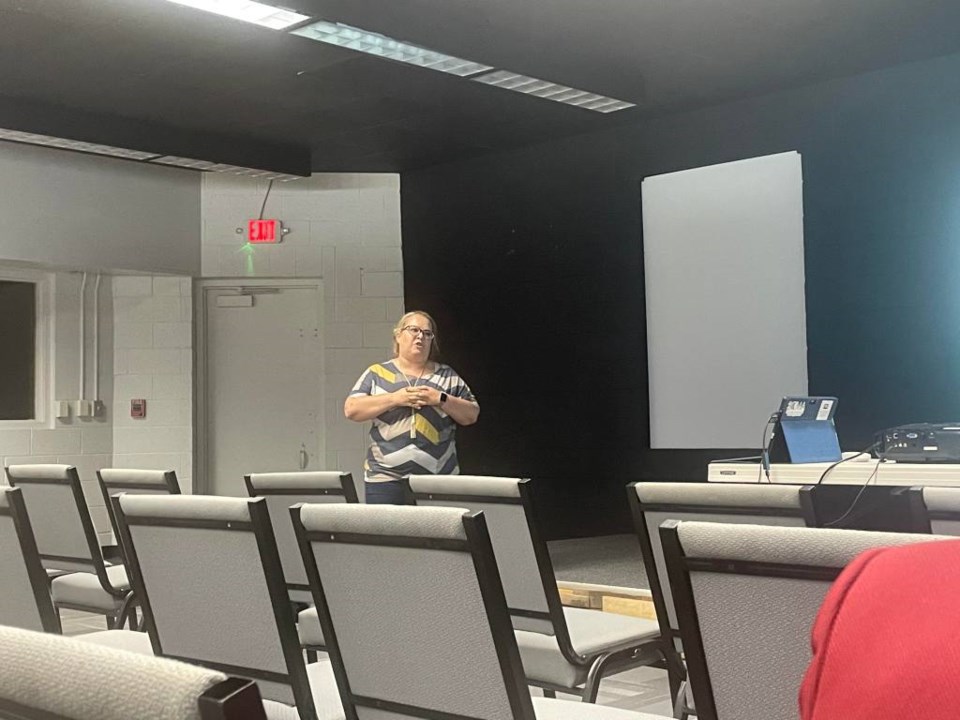
Next was Jenny Maddi, a sexual assault nurse examiner (SANE). Her presentation was focused on educating the members of the meeting about the Teal House. The Teal House is a non-profit regional sexual assault and child advocacy center. It serves to provide a direct response for victims of sexual assault. It also connects patients with medical, legal, social services, and law enforcement resources. Making patients feel safe and giving them the tools needed to process their recovery is Teal House's number one priority.
For Maddi, a successful day at the office is helping her patients gain complete freedom from their grief. She will even go as far as never referring to sexual assault victims as "victims," only calling them her patients instead.
"I want it to be that they don't remember their time with me, to be honest," she said. "We play music, we crack jokes, we try to do anything, whether it's a 60-year-old woman, whether it's a two-year-old."
Patients may never get over the initial trauma, but for Maddi, forgetting their time at the Teal House can be the best thing she can do for them.
Maddi would explain how patients are introduced to the Teal House. Often, police will bring them in; alternatively, patients can be brought in from the hospital or the crisis line. Cases are never done without a nurse and an advocate involved.
The Teal House also offers Teen Tuesdays. This is a session held at the Teal House on Tuesdays where kids can get educated on topics like online safety, peer pressure, mental health, and more. The goal of Teen Tuesdays is to help parents have an easier time discussing these situations with their children.
More information on the Teal House and its services is available on its website.
Catherine Findley, Domestic Violence
Last up on the guest list was Bulloch County Solicitor General, Catherine Findley. As Solicitor General, Findley's job is to prosecute civil cases like misdemeanors or traffic offenses. During her presentation, she brought up a specific example of a type of case her team deals with more relative to the day's discussion -- domestic violence.
"We deal with a great many number of what are designated as family violence," she said. "We have family violence with battery, we have family violence with criminal trespass offenses, things like that."
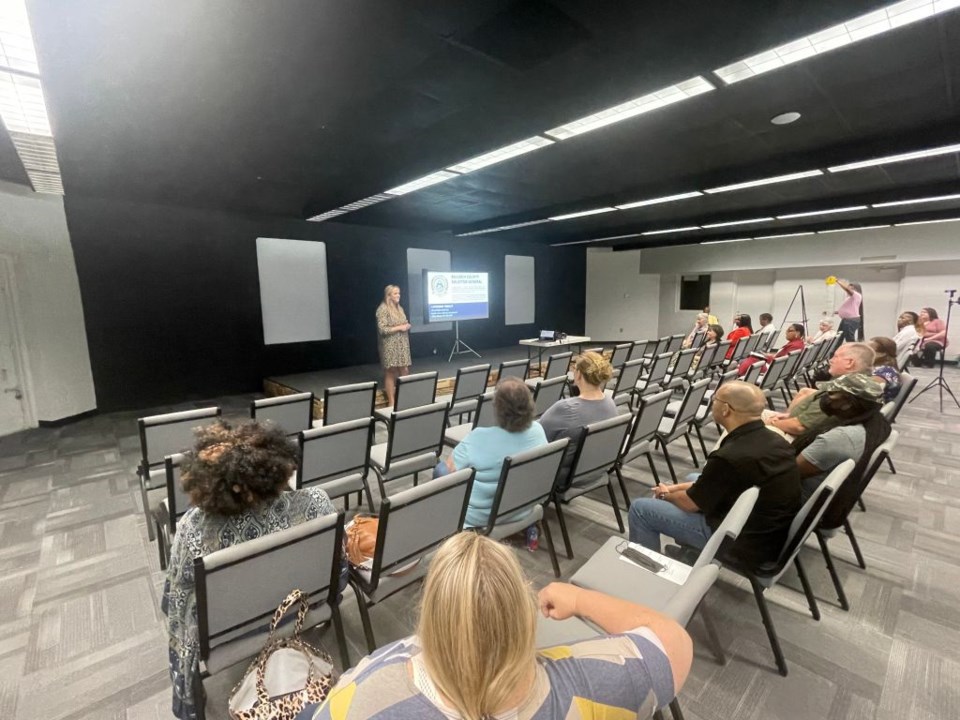
Findley discussed a couple of local resources related to domestic and family violence in our community.
Niki's Place
Domestic violence cases can always be especially tricky because they can affect everyone involved, particularly when it comes to children who have to take these problems to school. Findley introduced resources her team has been working on to help fight against these issues, such as their partnership with Niki's Place.
Niki's Place is a state-certified, 24-week domestic violence intervention program. The state runs this program for anyone who gets charged with domestic violence. Patients can be court-ordered or self-referred, however rare it may be. Many cases are given to them by the Department of Family and Child Services.
Niki's Place offers group therapy, as well. These sessions aim to teach offenders how to avoid becoming repeat offenders. Only one class can be taken a week. If someone manages to identify themselves as a domestic abuser, they can sign up for these classes of their own accord by calling Niki's Place at (912) 486-0946.
Marsy's Law
Another resource Findley explained during her presentation was Georgia's adoption of Marsy's Law. Marsy's Law was first created in California and has been adopted and codified into Georgia state law.
According to the Prosecuting Attorney of Georgia's website, Marsy's Law offers victims and their families to be heard and informed before criminals can be paroled.
"We've adopted that and codified this into our code section so that we have parameters by which we must all adhere," Findley said. "To make sure we're putting that information in there early so that they can know what to expect from us and what to expect from the process."
Marsy's Law makes it mandatory that domestic violence victims and their families have a right to a reasonable, accurate, and timely notice when court hearings are scheduled. This right also extends to the accurate and timely notice of the accused's arrest, release, or escape. In addition, victims and families can also file a written objection to any parole proceedings involving the accused. These, among many other rights, are listed on the website.
Getting Involved
The meeting illustrated, in no uncertain terms, that violence is an issue in Statesboro. But some steps can be taken to reduce the rate it happens, and as demonstrated by this meeting, it all starts with getting involved.
For more information on how you can get involved, contact the One Boro Commission. The commission's next meeting is October 3 at 5:30pm.
The City of Statesboro has made video of the event available below.

